Special Report
Talking Turkey, Cutting the Mustard, and 25 Other Food Phrases
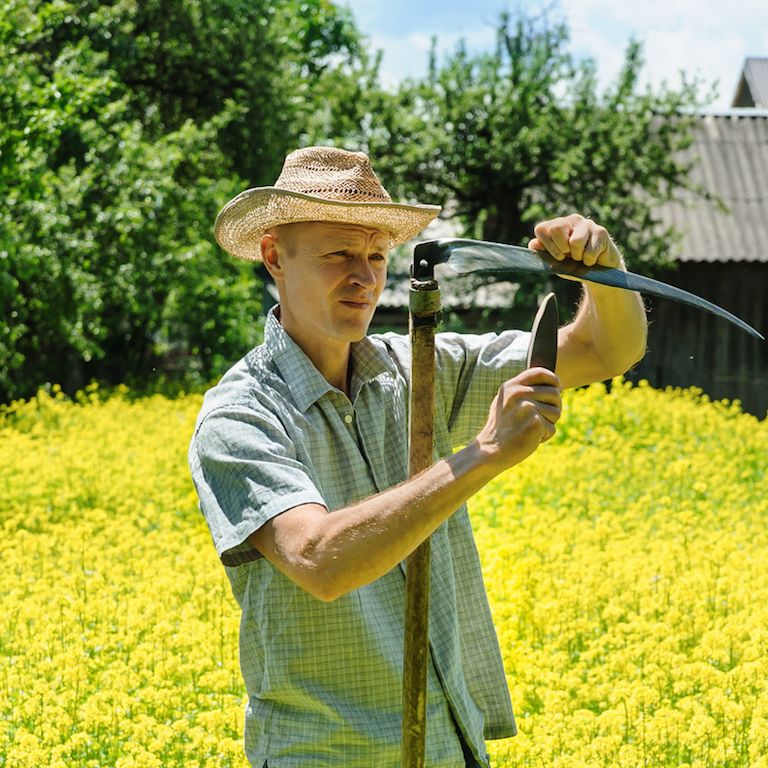
Published:

Since food is such an essential part of everybody’s life, it’s hardly surprising that over the centuries people have come up with many phrases, idioms, and metaphors that invoke food to make a point.
Americans are hardly alone in this. Food expressions probably exist in every language, and likely have for as long as people have been cooking. The French, to whom food is an obsession, have scores of them. One example: When they want to say that a man is particularly sensitive, they might propose that “Il a la coeur d’artichaut” — “He has the heart of an artichoke.”
A Spaniard might tell you to “get lost” by inviting you to “¡Vete a freír a espárragos!” — “Go fry asparagus!” When somebody’s life is going really well in Russia, he or she might claim to be “kak v masle syr,” meaning “like cheese in butter.” Even American Sign Language has food phrases: The gestures for “fish” and “swallow,” for instance, can translate to “You’re so gullible!”
The 25 food phrases here, from “apple-pie order” to “the world is my oyster,” are just a fraction of the culinary expressions we use — or used to use — in English. Among the others: “apple of my eye,” “thick as pea soup,” “have your cake and eat it too,” “cool as a cucumber,” “nutty as a fruitcake,” “that’s the way the cookie crumbles,” and “his goose is cooked.”
Some of our food phrases are American in origin. Others are British, or even Australian. Some were coined by Shakespeare; others are 20th-century slang. They’re all colorful and useful for various situations and often just plain delicious.
Click here to see talking turkey, cutting the mustard, and 25 other food phrases
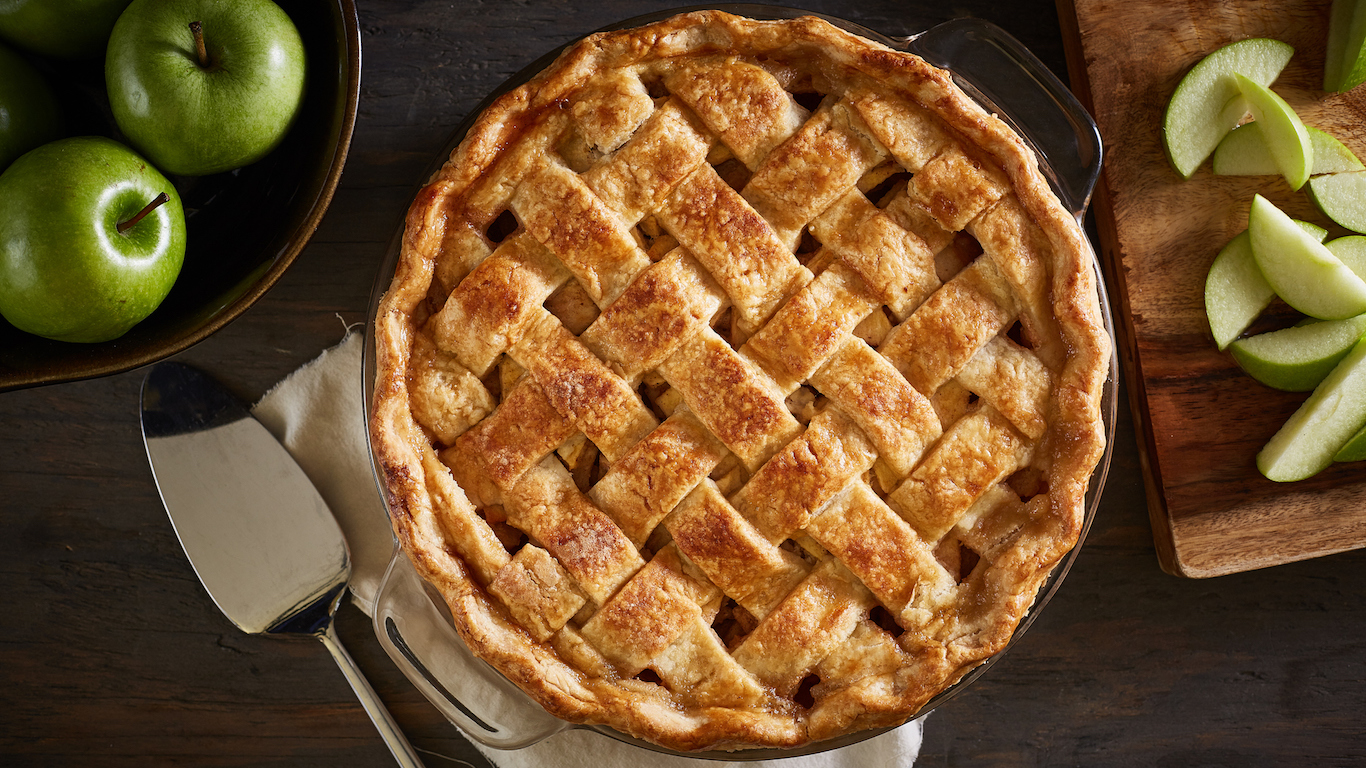
There are various explanations for this phrase, which was first recorded in 1780, that refer to the meticulousness of New England or Midwestern housewives when they baked. The most prevalent theories, though, suggest that “apple pie” in this case might be a corruption of a French phrase — either cap-à-pie, “head to foot,” or nappes-pliées, “folded napkins.”
[in-text-ad]

Used in Britain since at least the mid-19th century, the term is apparently just a reference to the unpleasant odor of a spoiled egg.
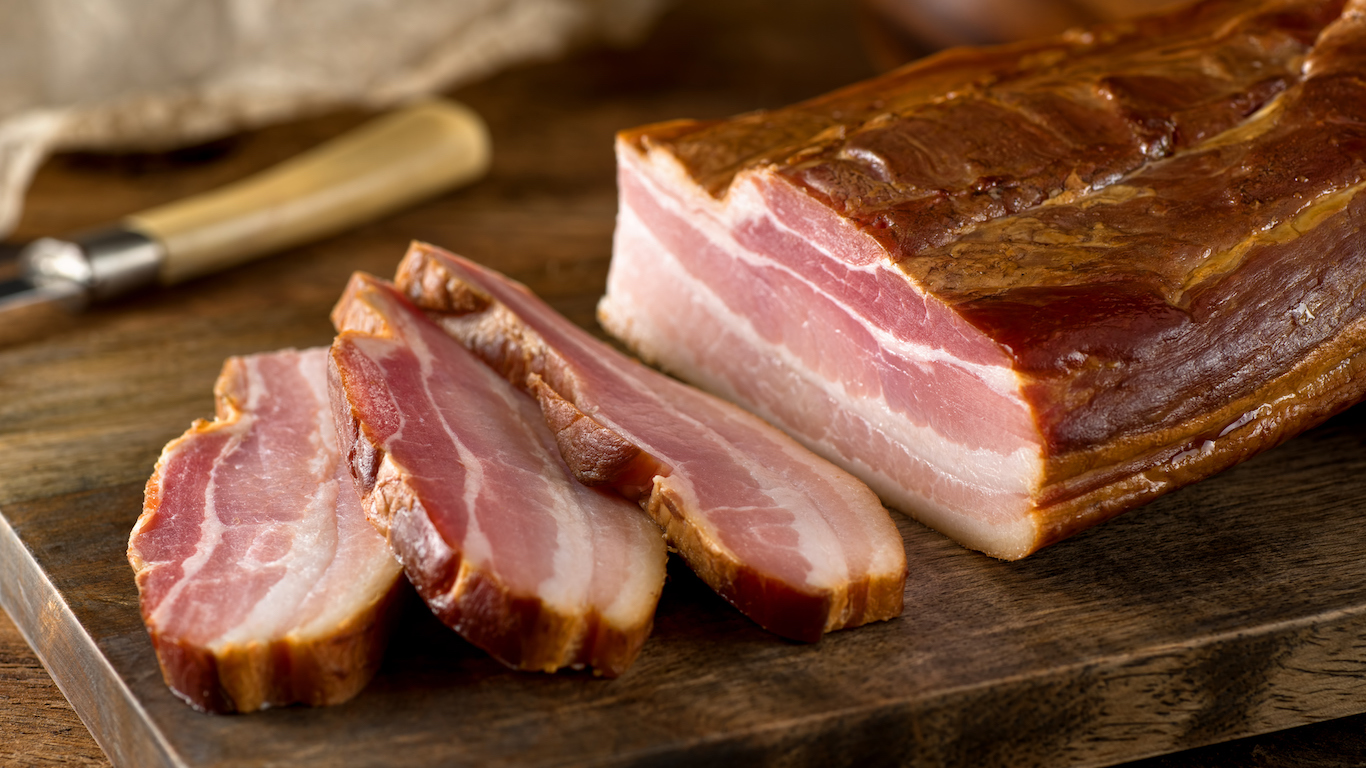
The association of bacon with success dates from medieval England. It was a custom in some rural towns, most famously the Essex village of Dunmow, to award a flitch (slab) of bacon to any married couple who could swear that for the period of a year and a day they hadn’t quarreled or regretted getting married. “Bring home the bacon” in the modern sense was apparently first used by English humorist P.G. Wodehouse in 1924.

The expression is often credited to 16th century English playwright and poet John Heywood, who first recorded it as a proverb in 1536. However, priest and royal tutor John Palsgrave used it in a textbook six years earlier, writing “He maketh as thoughe butter wolde nat melte in his mouthe.”
[in-text-ad-2]
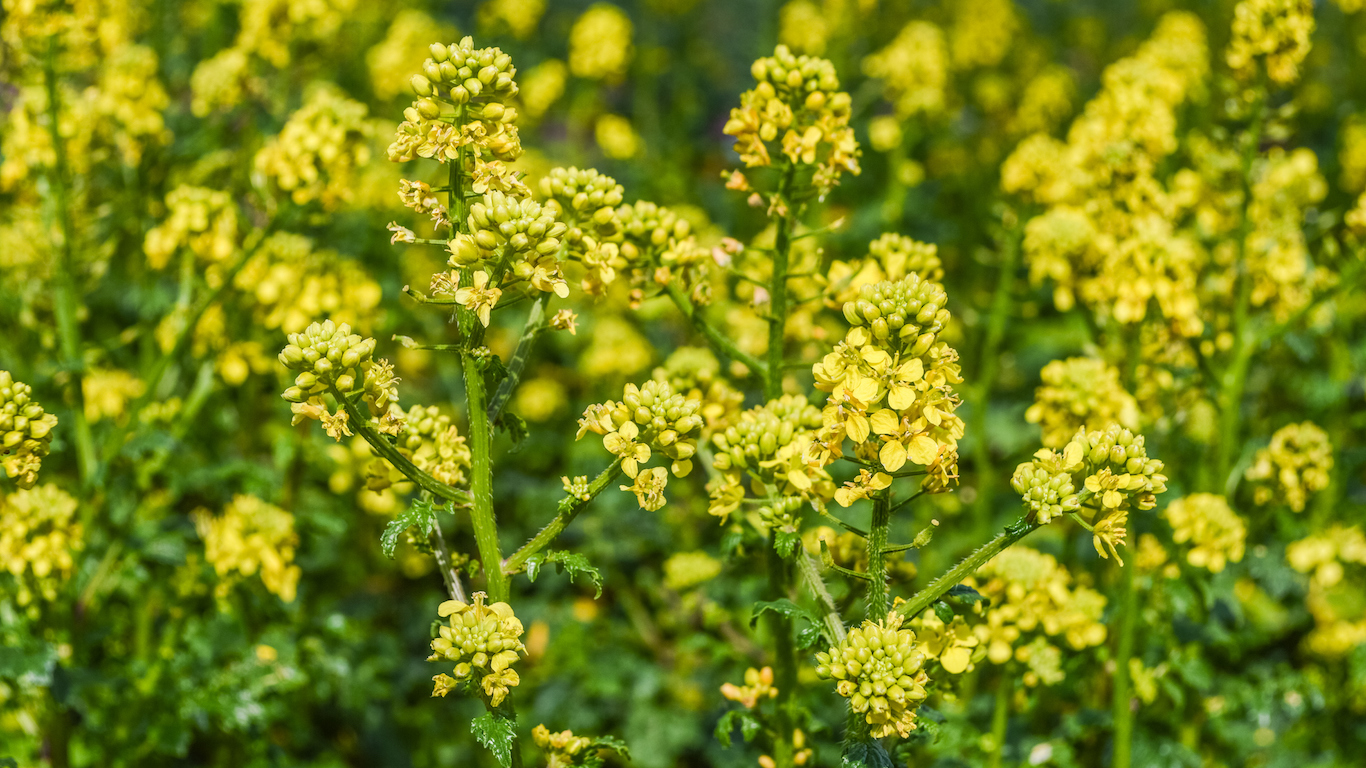
The origins of this phrase are unclear, but it was first used in print by American short story writer O. Henry in 1907. It probably refers to cutting or harvesting mustard plants, not to slicing through a thick yellow paste.
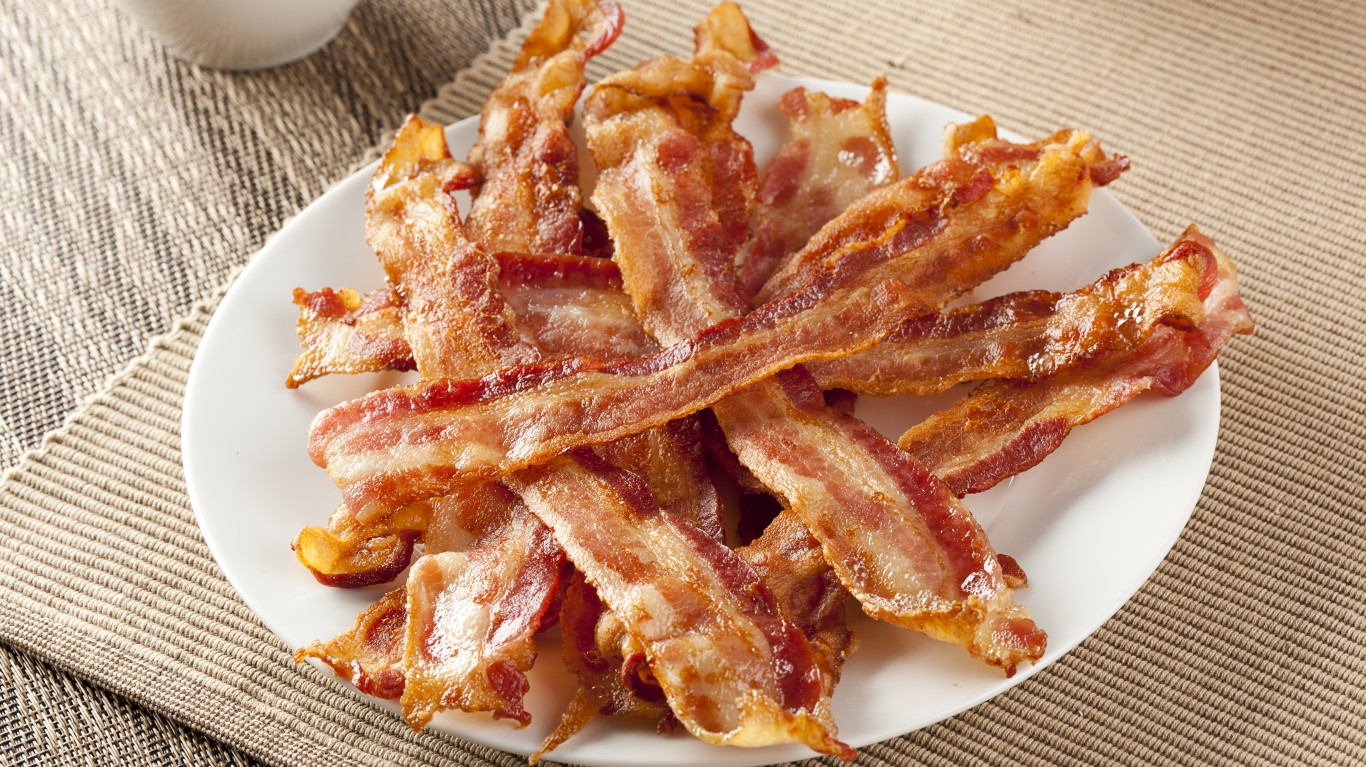
This variation on an earlier phrase, “chew the rag,” first appeared in England in 1885. The connection between talking and chewing fat isn’t obvious, though some sources speculate that it refers to the practice of British sailors at the time of chewing on hunks of salt pork as a snack when they sat around conversing.
[in-text-ad]

The Irish satirist and poet Jonathan Swift, author of “Gulliver’s Travels,” wrote in 1738 that “‘Tis a Folly to cry for spilt Milk,” thus committing to print what was probably a far older folk saying. The sense is simply that once milk has been spilled, it’s gone (unless you’re a cat).

New England humorist and bookseller Asa Greene used the phrase “He don’t know beans” in 1833, which was its first appearance in print. The idea is that beans are small and cheap, so somebody who doesn’t know anything about them clearly won’t know about more important things.
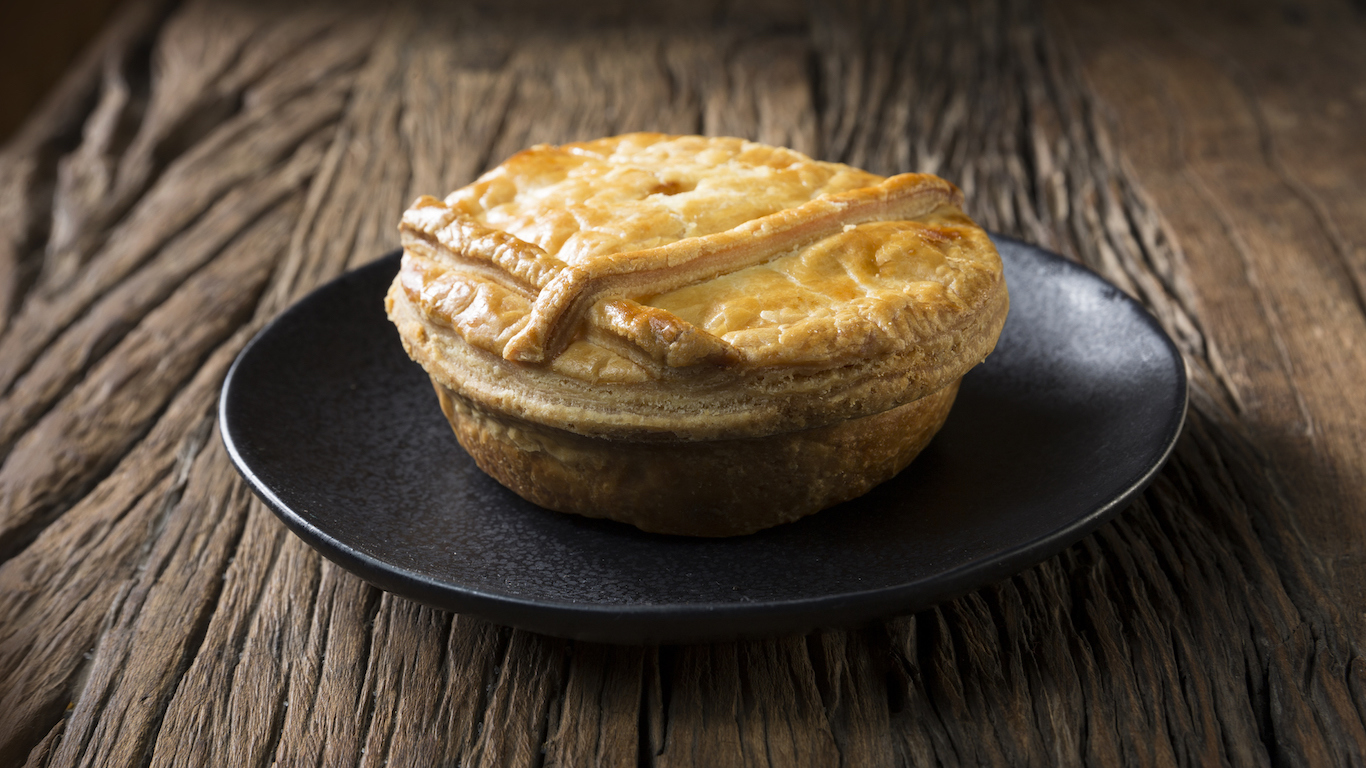
Strangely enough, this phrase probably didn’t originally have anything to do with humility. “Umbles” is an old English word for the edible organs — liver, heart, etc. — of an animal, usually a deer. While the upper class of an earlier time might have eaten roast venison haunch, the servants would be given an organ-meat pie. Some 17th-century punster likely changed “umble” to “humble,” equating low social station with self abasement.
[in-text-ad-2]
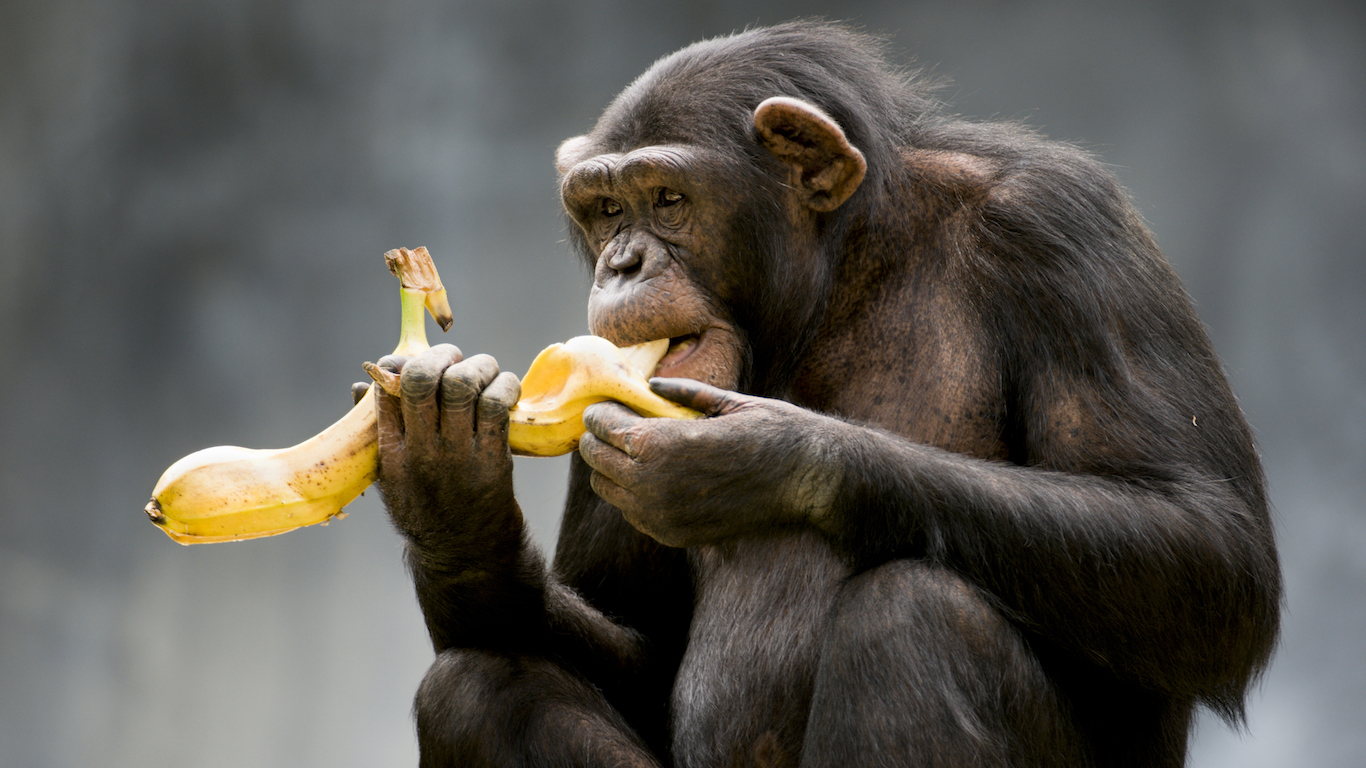
First appearing in the 1930s, the expression might be a reference to the frenzy with which apes or monkeys attack a bunch of bananas. It may also be related to a slightly earlier term, “banana oil,” meaning “nonsense.”
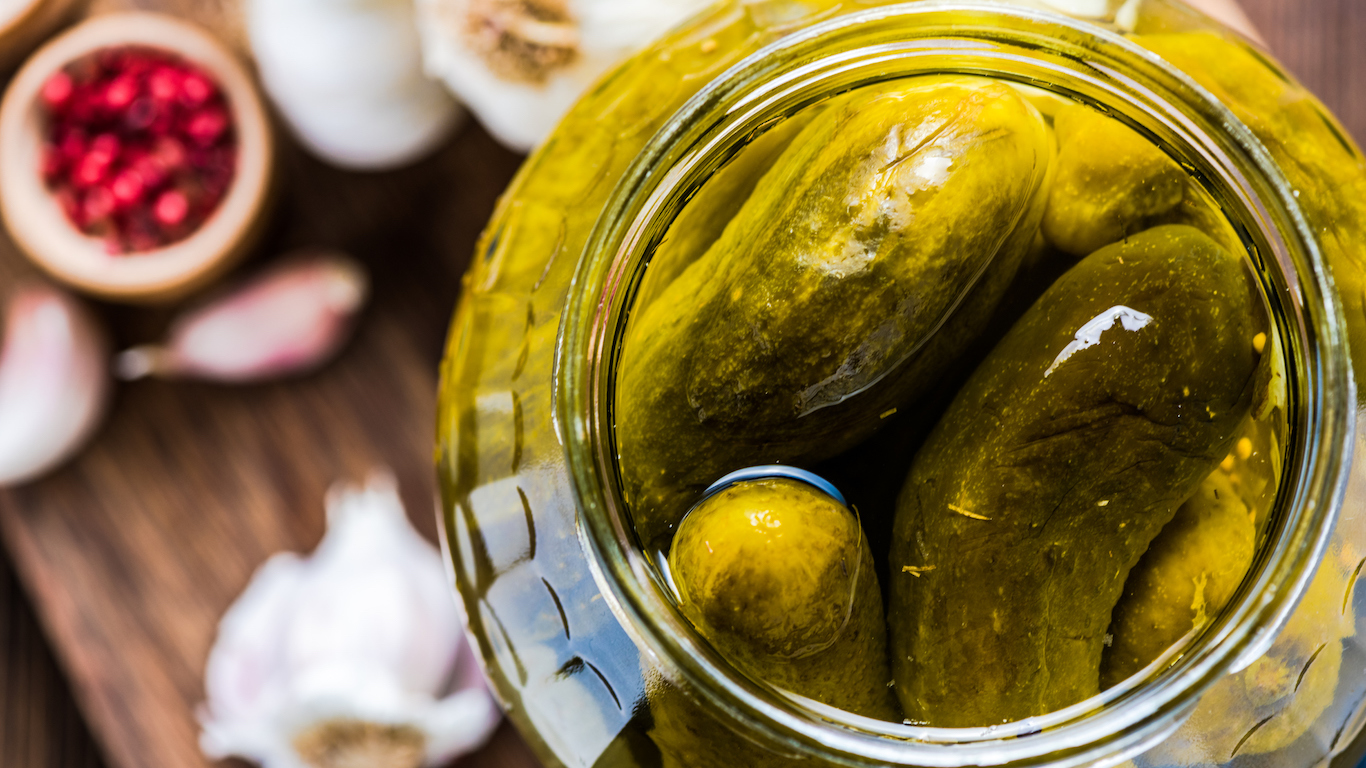
This one dates back at least to Shakespeare’s time. The Bard has Trinculo, in “The Tempest,” say, “I have been in such a pickle since I saw you last.” In that era, pickles were an assortment of stewed vegetables preserved in vinegar, and thus a metaphor for a piquant mess.
[in-text-ad]

Dating from the 1890s and apparently Australian in origin, this phrase is a reference to the fact that China produces an immense amount of tea — 2.4 million tons of it, according to the most recent figures available — a very valuable commodity.
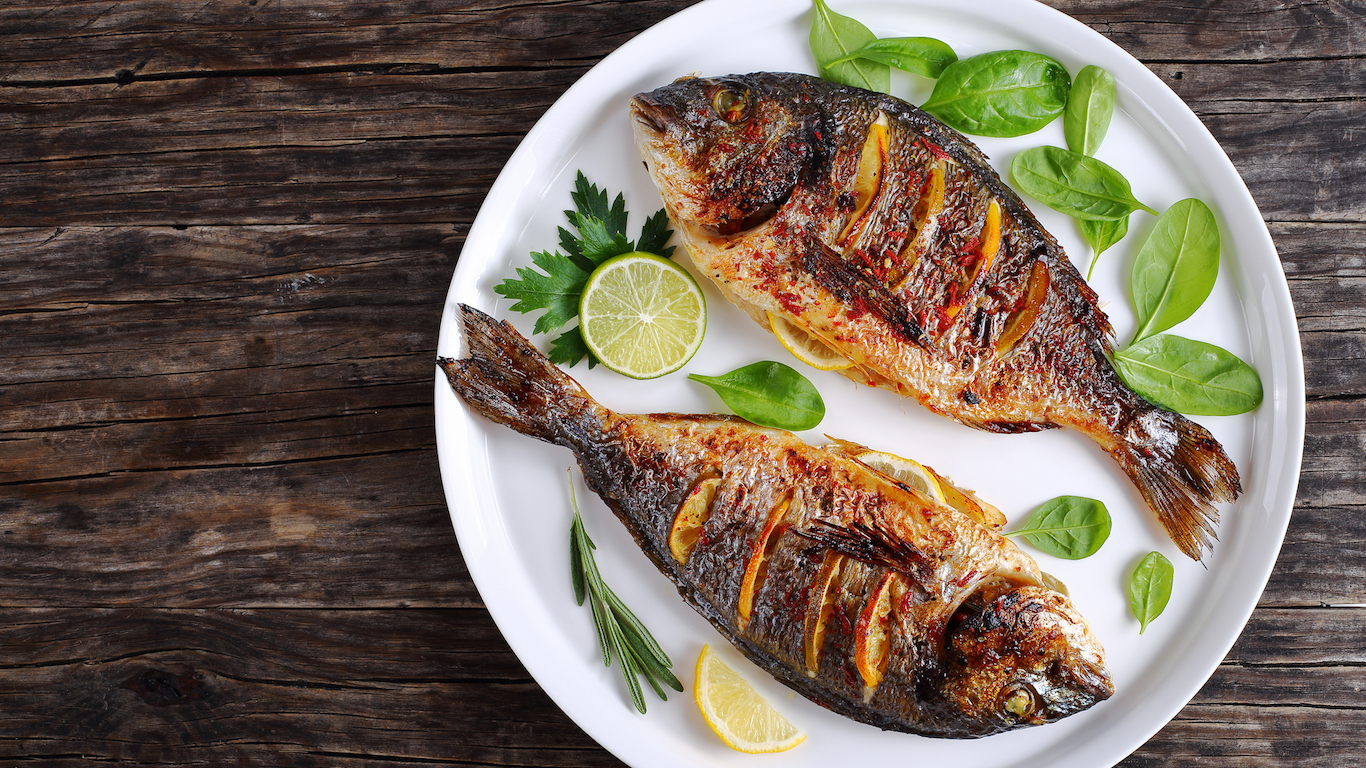
13. Other [bigger] fish to fry
> Meaning: Something more important or pressing to do
“The Oxford English Dictionary” traces this expression to 1660. Nobody knows where it sprang from, but it seems possible that its origins were in the kitchen.
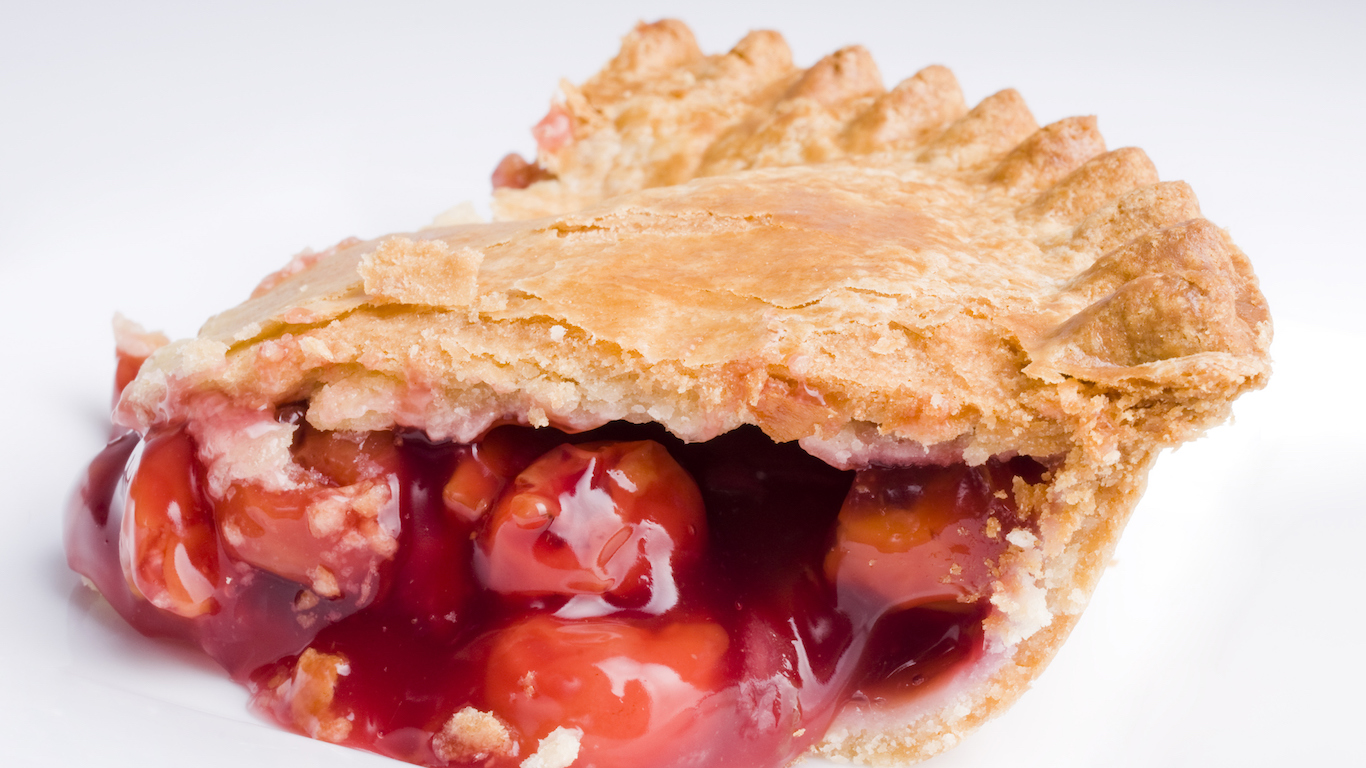
14. Pie in the sky
> Meaning: A fantasy or pipe dream, a heavenly reward
This phrase was coined by Swedish-born American labor organizer and political songwriter Joe Hill. It comes from his 1911 composition, “The Preacher and the Slave,” which mocks the promises made to exploited workers. The pertinent passage goes, “Work and pray, live on hay / You’ll get pie in the sky when you die.”
[in-text-ad-2]

15. Piece of cake
> Meaning: Something effortless or easy
American comic poet Ogden Nash used this phrase in a piece of verse from 1936, though it’s probably older. The sense is probably that eating a piece of cake is an easy task. A related phrase is “easy as pie.”

16. Salad days
> Meaning: A period of youthful innocence and/or inexperience
We owe this one to Shakespeare, who had Cleopatra — in “Antony and Cleopatra,” from 1606 — speak of “My salad days, when I was green in judgment…” The operative word here is “green,” a synonym for inexperience.
[in-text-ad]
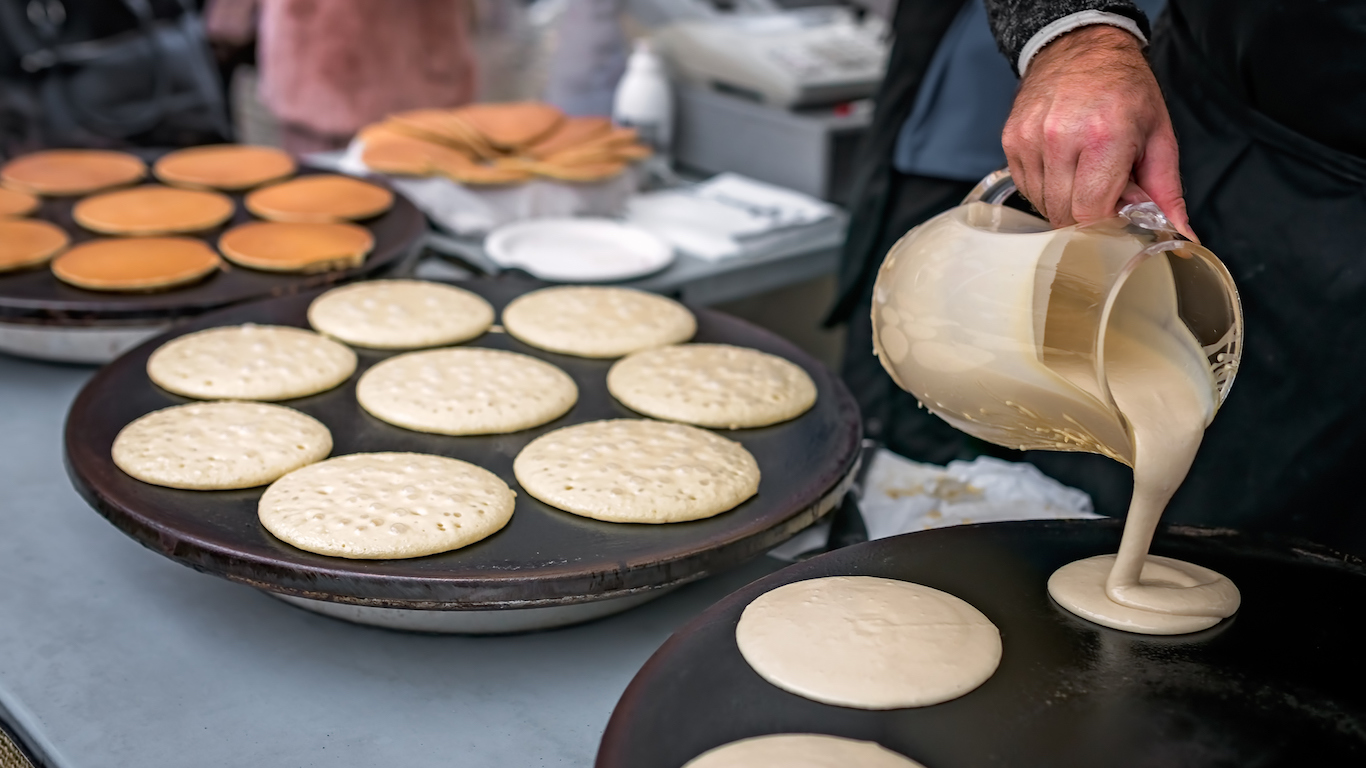
17. Sell like hotcakes
> Meaning: Sell easily and quickly
American journalist and author Charles Frederick Briggs first used this expression in print in 1839. It is believed to derive from the fact that hotcakes, or pancakes, were often sold at church bazaars and country fairs and were best eaten hot off the griddle.
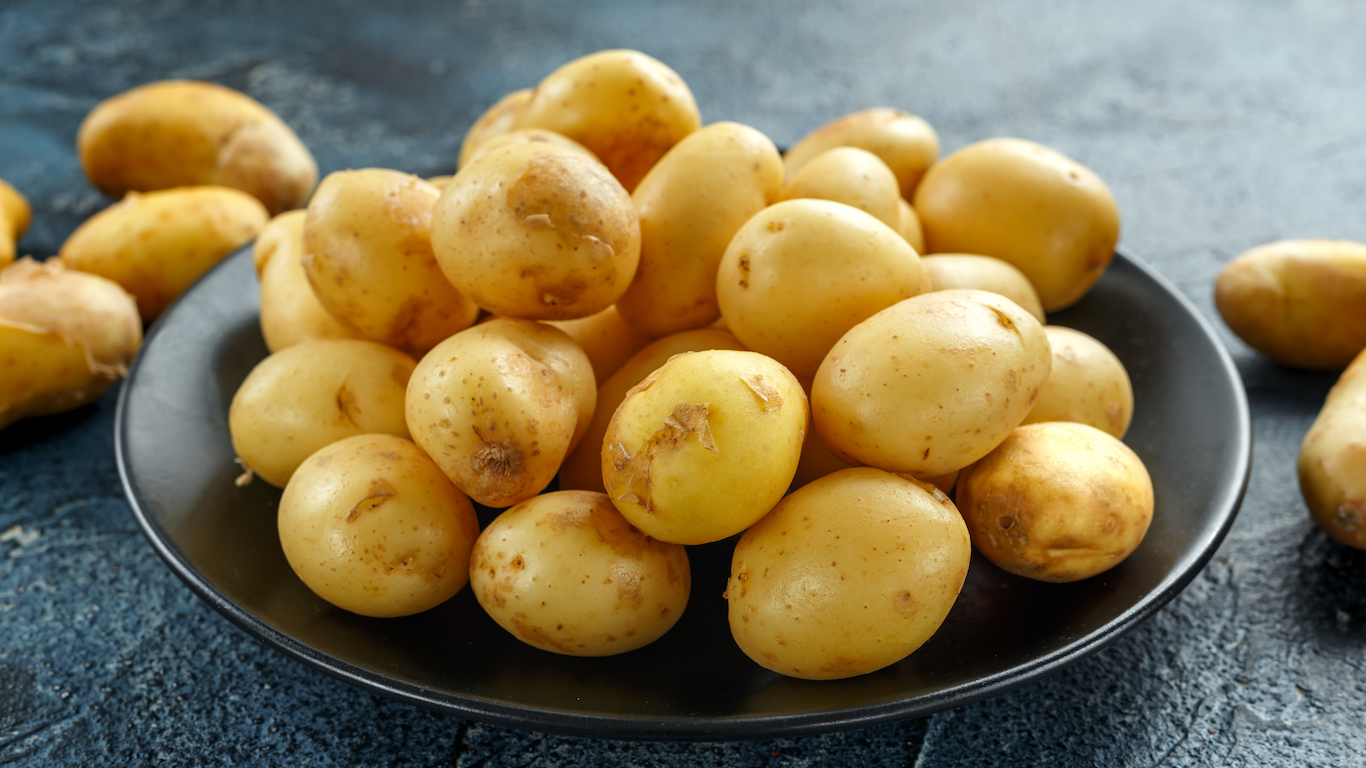
18. Small potatoes
> Meaning: An insignificant person or thing
Samuel Taylor Coleridge, the English poet who wrote “The Rime of the Ancient Mariner,” used this idiom in 1797. Some sources suggest that it was a reference to the undersized, blighted potatoes harvested in Ireland during periods of famine. These potatoes were nutritionally negligible compared to the healthy potatoes that would have grown under normal conditions.

19. Smart cookie
> Meaning: An intelligent person
The use of “cookie” to mean “person” is American slang from the 1920s. Nobody knows exactly why. Besides smart cookies, though, there are also “tough” ones.
[in-text-ad-2]
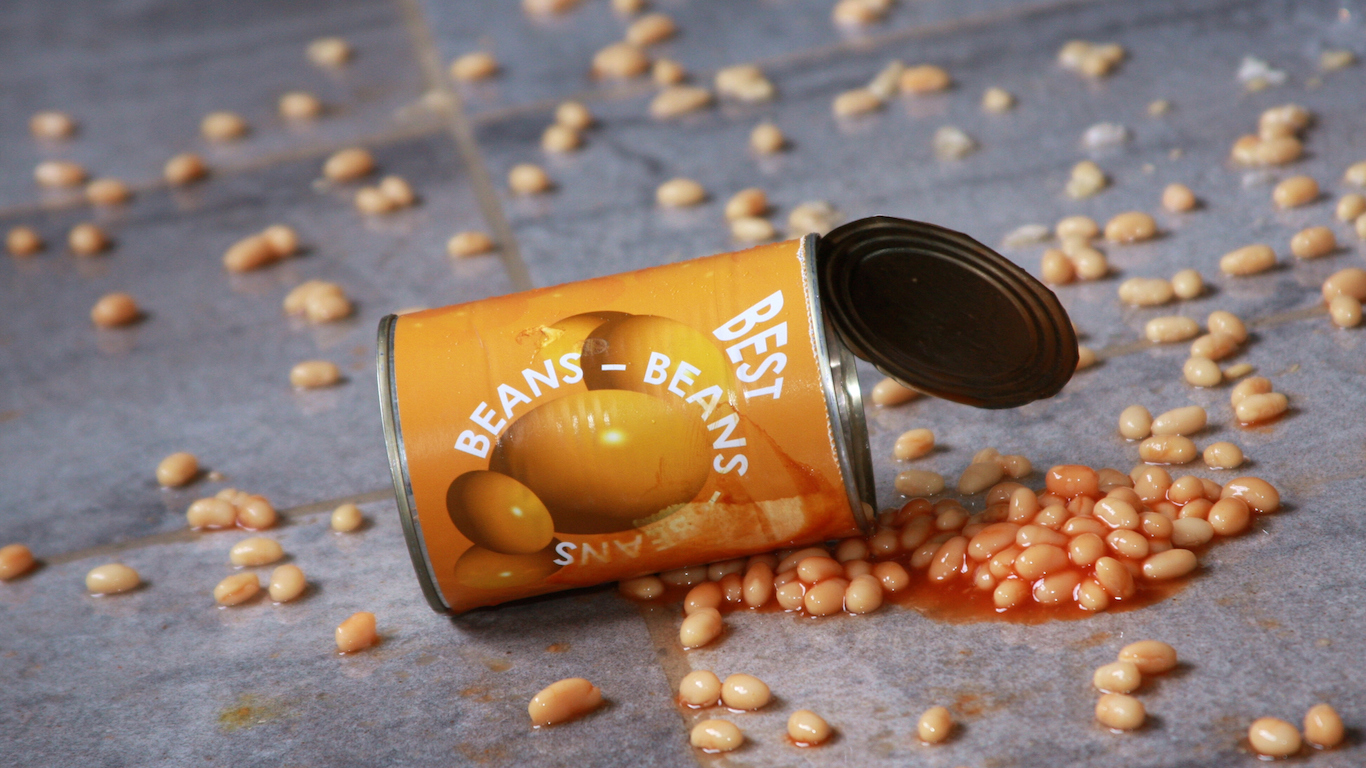
20. Spill the beans
> Meaning: Give away a secret
This is American slang, dating back to the early 1900s. It originally meant to upset or spoil something, and gradually took on the meaning of betraying a confidence.

21. Take with a grain of salt
> Meaning: Treat something skeptically or not literally
Roman author and naturalist Pliny the Elder included “a grain of salt” in his recipe for an antidote to poison, and this might have been the origin of the phrase. Another explanation is that since “salis” means both “salt” and “wit” in Latin, the original meaning might have been “don’t take it seriously.”
[in-text-ad]

22. Take the cake
> Meaning: Win the prize or be an extreme or definitive example of something
The ancient Greeks used “cake” as a synonym for “award” or “honor,” but the usage doesn’t seem to have appeared in English until the 19th century. The phrase may have been inspired by the African-American “cakewalk” dance competitions of the latter 1800s, in which couples competed for the prize of an elaborate cake.

23. Talk turkey
> Meaning: Get down to business, have a serious discussion
A story first recounted in 1824 holds that an Indian and a white man, who had spent the day hunting together but bagged only one wild turkey and one crow or buzzard between them, were discussing how to divide the birds. The white man offered the Indian only the crow, and the latter man complained “You no talk turkey to me.” Scholars usually dismiss this tale as apocryphal, but offer no alternative etymology.

24. The whole enchilada
> Meaning: The whole thing, everything
This expression dates from the 1960s and comes from California — not surprisingly, considering the state’s profusion of Mexican restaurants. The sense isn’t clear, since enchiladas aren’t usually very big. A related phrase is “the big enchilada,” meaning the boss or most important person.”
[in-text-ad-2]

25. The world is my oyster
> Meaning: Riches await me, I can have anything I want
Shakespeare again. Falstaff’s acolyte Pistol, in “The Merry Wives of Windsor,” declares “[T]he world’s mine oyster, which I with sword will open.” This is a reference to the possibility of finding a valuable pearl inside the bivalve.
The average American spends $17,274 on debit cards a year, and it’s a HUGE mistake. First, debit cards don’t have the same fraud protections as credit cards. Once your money is gone, it’s gone. But more importantly you can actually get something back from this spending every time you swipe.
Issuers are handing out wild bonuses right now. With some you can earn up to 5% back on every purchase. That’s like getting a 5% discount on everything you buy!
Our top pick is kind of hard to imagine. Not only does it pay up to 5% back, it also includes a $200 cash back reward in the first six months, a 0% intro APR, and…. $0 annual fee. It’s quite literally free money for any one that uses a card regularly. Click here to learn more!
Flywheel Publishing has partnered with CardRatings to provide coverage of credit card products. Flywheel Publishing and CardRatings may receive a commission from card issuers.
Thank you for reading! Have some feedback for us?
Contact the 24/7 Wall St. editorial team.